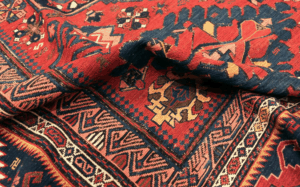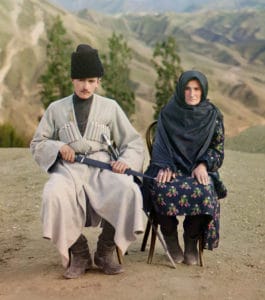As the deer pants for streams of water, so my soul pants for you, my God.
My soul thirsts for God, for the living God (Psalm 42:1–2, NIV).
In awe. That’s how I often feel when our team is working on the translation of God’s Word into the Kisun* language, in the Caucasus region. It’s special to see how close the Bible is to the Kisun culture. Honour and shame, the position of women, the country life . . . so similar to the world in Jesus’ time. The challenge is now to let the Word come to life again in true Kisun and true to the source.
Moved to Tears
I work with the translation team a few times a week by Skype. I’m in the capital city, the translators are 400 km away. I ask questions; we are looking for the right phrases and write and rewrite the text. Translation is like weaving a carpet; thread after thread until the beautiful patterns show. 
This time we are working on a passage about the crucifixion. We read a passage in Russian, then in the language of the country and then the draft in the Kisun language, to be able to discuss it.
Suddenly it goes quiet on the other side of the line. That’s normal: power cuts regularly cause break ups in the Internet connection.
After a while I hear something again: “I was here all the time,” says the translator, “but I can only read this aloud in other languages. If I read in Kisun about the cross, I weep. To think He really did this!”
Now it’s my turn to go quiet. Caucasian men don’t cry. Still, it seems the proximity of the cross does make them cry.

“Men from the Caucasus don’t usually cry.” Photo: Wikimedia Commons
A few weeks later I’m in a Kisun village, having tea with Anna* and Alijah*, people who test the translation drafts. They read drafts and ask questions to people outside the translation team to check if people understand the text well and if the chosen terms and style are correct.
Eagerly Waiting
I see God’s Word in Russian lying on the table, obviously well used. I notice a high pile of papers next to it.
‘What’s that?’ I ask.
Anna smiles sheepishly: “That’s your translation.”
I am surprised. “But you always give the drafts back to me, with your comments. How can you still have them?”
Alijah says: “We always go to the city specially to make copies of the papers. We keep the copies and read from them every day, because we cannot wait to have the Kisun translation finished.”
*Pseudonyms used for security
Source: wycliffe.org.uk
Writer: Coralie Z.

